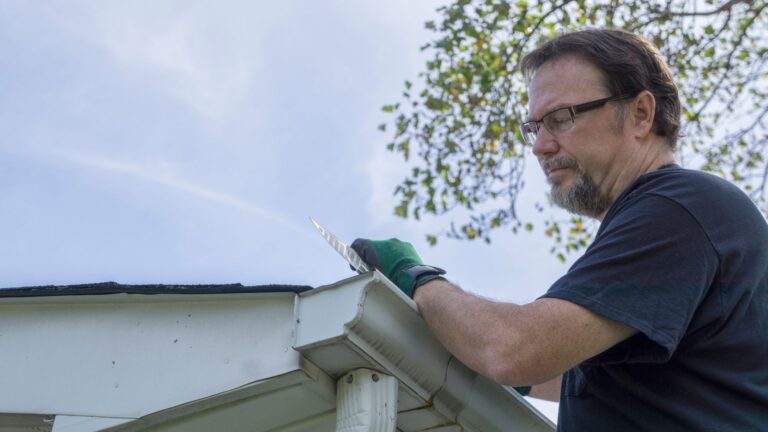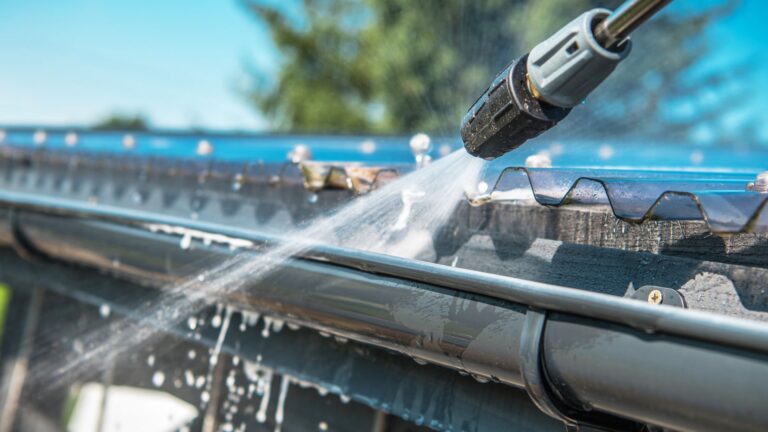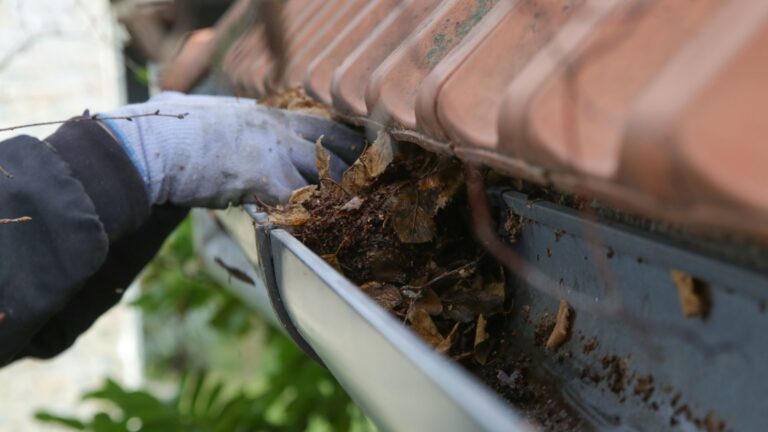As eco-conscious living becomes increasingly important across New Jersey, more homeowners are seeking sustainable home solutions that align with green building principles. From energy-efficient appliances to renewable materials, every detail matters—including your gutter system. Choosing eco-friendly gutters is a smart step toward reducing your environmental footprint while enhancing your home’s resilience. In a state like New Jersey, where seasonal weather shifts demand efficient water management, investing in sustainable gutter options can make a significant difference in long-term home maintenance and environmental impact.
Your gutter system plays a vital role in managing rainwater runoff, and the materials and installation methods you choose can either support or harm the environment. Traditional gutter systems often use materials that are resource-intensive and non-recyclable, whereas eco-friendly gutters—such as those made from recycled aluminum, steel, or copper—help promote sustainability. These green building NJ solutions not only last longer but also reduce the need for frequent replacements, lowering waste and conserving resources. By upgrading to environmentally responsible gutter systems, green-conscious NJ homeowners can contribute to a cleaner, more sustainable future while protecting their property.
Table of Contents
Why Eco-Friendly Gutters Matter for NJ Homes
Traditional gutter systems, often made from non-recyclable or chemically treated materials, can have a surprisingly negative impact on the environment. When these gutters deteriorate or are replaced, they typically end up in landfills, contributing to long-term waste. Additionally, many conventional gutter coatings and cleaning chemicals contain pollutants that can leach into the soil and water systems—an especially concerning issue in New Jersey’s densely populated suburban and urban areas. Poor water management from outdated gutters can also lead to soil erosion and water runoff problems, affecting both local ecosystems and property foundations.
Switching to eco-friendly gutters offers a smart, sustainable alternative for environmentally conscious NJ homeowners. Green gutter systems are often made from recyclable materials like aluminum or copper, which reduce landfill waste and offer long-term durability. Many are designed to work seamlessly with rainwater harvesting systems, promoting responsible water use. By investing in sustainable gutters, homeowners not only reduce their carbon footprint but also align with New Jersey’s broader environmental initiatives, such as energy efficiency rebates and green building standards. It’s a practical upgrade that benefits both your home and the planet.
Best Eco-Friendly Gutter Materials for Sustainable Homes
Choosing the right material is key to making your gutter system environmentally friendly. For New Jersey homeowners aiming to reduce their environmental impact, these sustainable gutter materials offer durability, performance, and eco-conscious benefits.
Aluminum Gutters
Recyclability and Lightweight Benefits
Aluminum is one of the most popular eco-friendly gutter materials due to its high recyclability and lightweight design. It’s easy to install, reduces transportation emissions, and can be recycled at the end of its lifespan without compromising quality. Because aluminum gutters resist rust and corrosion, they last longer—making them a smart long-term investment for sustainable homes.
Local Sourcing Advantages in NJ
In New Jersey, aluminum is readily available through local suppliers, which reduces the carbon footprint associated with shipping. Supporting regional manufacturers also helps stimulate the local green economy while ensuring your gutter system meets local building codes and climate demands.
Copper Gutters
Longevity and Minimal Maintenance
Copper gutters are a premium eco-friendly option known for their exceptional lifespan—often lasting over 50 years with minimal upkeep. Their natural patina protects against corrosion and harsh weather, making them ideal for the varied climate conditions in New Jersey.
Recyclable and Naturally Antimicrobial
Copper is 100% recyclable and can be reused indefinitely without losing its properties. Additionally, it possesses natural antimicrobial qualities, reducing the buildup of mold and bacteria inside the gutters, which can lead to cleaner water management when paired with rainwater harvesting systems.
Galvanized Steel Gutters
Durability and Reduced Replacement Needs
Galvanized steel gutters are incredibly durable and resistant to physical damage, making them ideal for areas in New Jersey that experience heavy snow, rain, or falling debris. While not as lightweight as aluminum, their toughness means fewer replacements over time—translating into reduced waste and maintenance-related emissions.
Vinyl Alternatives
Eco-Safe Composite or Recycled Vinyl Options
Traditional vinyl gutters are petroleum-based and not environmentally friendly, but newer eco-safe alternatives are changing the game. Some manufacturers now offer gutters made from recycled vinyl or composite materials that reduce reliance on virgin plastics. These options provide a cost-effective and greener choice for homeowners looking to balance budget with sustainability.
Recycled and Upcycled Gutter Options
Choosing recycled or upcycled gutter materials is a smart way to reduce your environmental footprint while still protecting your home. Recycled gutters—typically made from reclaimed aluminum, steel, or composite materials—help divert tons of waste from landfills each year. By opting for materials that have already been processed, homeowners can significantly cut down on the energy and resources used in manufacturing new products. Upcycled gutters, often creatively repurposed from salvaged building materials, offer both functionality and a unique aesthetic appeal. These choices align perfectly with the growing movement toward sustainable building practices in New Jersey.
Homeowners in New Jersey can find recycled gutter options through local green building suppliers, architectural salvage yards, and eco-friendly home improvement stores. Companies specializing in sustainable construction often carry reclaimed gutter materials or can custom-order them based on your home’s needs. Additionally, local recycling centers and some metal fabricators in NJ offer services to repurpose old gutters into new, usable components. By sourcing gutters locally, you not only minimize transportation emissions but also support the state’s green economy.
Rainwater Harvesting Integration
Integrating rainwater harvesting into your gutter system is a practical and eco-conscious way to manage stormwater while reducing household water usage. In a state like New Jersey, where seasonal rainfall is relatively consistent, capturing and reusing rainwater can significantly benefit both your landscape and your utility bill.
Gutter Systems Compatible with Rain Barrels
How to Install Rain Barrel-Friendly Gutter Systems
Start by selecting downspouts that easily divert or connect to a rain barrel. Use diverter kits to channel water from the gutter directly into the barrel while preventing overflow. To keep debris out of your collected water, install leaf guards and filters. Most modern aluminum or vinyl gutter systems in New Jersey support rain barrels and can be retrofitted with minimal effort.
Benefits of Harvesting Rainwater in NJ Climate
New Jersey’s moderate rainfall makes rainwater harvesting especially practical. You can use collected rainwater to irrigate gardens, wash vehicles, or water lawns, which reduces your reliance on municipal water supplies. Harvesting rainwater conserves natural resources and helps manage stormwater runoff—a growing concern in urban and suburban areas of New Jersey. Additionally, some local programs offer green incentives or rebates to homeowners who implement rainwater harvesting systems.
Eco-Friendly Downspout Extensions
Directing Water to Gardens or Rain Gardens
Eco-friendly downspout extensions redirect water from your gutters to sustainable areas such as rain gardens, planter beds, or permeable soil zones. These extensions help prevent soil erosion and lessen the burden on storm drains by naturally filtering and absorbing runoff. For New Jersey homeowners, this method supports local biodiversity and improves yard drainage, especially in areas prone to flooding.
Gutter Guards and Filters for Sustainable Maintenance
Installing gutter guards and filters provides a smart, eco-conscious way to maintain your gutter system while lowering your environmental impact. These components keep leaves, twigs, and other debris out of your gutters, allowing water to flow freely through the system. By minimizing blockages, you reduce the risk of overflow and water waste—especially during New Jersey’s rainy spring and fall seasons. Efficient water flow also helps rainwater harvesting systems stay clean and functional, promoting more effective water reuse.
Using gutter guards and filters also cuts down on maintenance needs and reduces reliance on harsh cleaning chemicals. Traditional gutter cleaning often requires detergents or chemical solutions that harm plants, soil, and local waterways. When you install guards and filters, your gutters stay cleaner for longer, need fewer cleanings, and eliminate the need for toxic products. This low-maintenance, eco-friendly solution saves you time and money while supporting the green living practices that more New Jersey homeowners are adopting.
Local Green Building Standards in New Jersey
NJ-Specific Green Home Requirements and Incentives
New Jersey promotes sustainable construction and renovation by enforcing comprehensive green building standards. The New Jersey Economic Development Authority (NJEDA) requires new commercial buildings and major renovations to improve energy efficiency by at least 5% over ASHRAE 90.1-2022 standards. For residential projects, NJ encourages homeowners to comply with ENERGY STAR guidelines or achieve a Home Energy Rating System (HERS) Index of 75 or lower.
The state also supports these green initiatives through incentives. Programs like NJEDA’s Aspire and Emerge offer tax credits to developers who pursue green building certifications or adopt energy-efficient measures. Homeowners benefit too, enjoying reduced utility bills and potential tax rebates when they incorporate sustainable features into their homes.
LEED Certification and Eco-Gutter Compliance
The U.S. Green Building Council administers the Leadership in Energy and Environmental Design (LEED) certification, a widely recognized green building standard. In New Jersey, projects over 15,000 square feet that receive state funding must often achieve LEED Silver certification. Homeowners who pursue LEED certification can increase their property’s value and showcase their commitment to sustainability.
Installing eco-friendly gutter systems helps you meet LEED criteria by improving water management and minimizing environmental impact. Using rainwater harvesting, recycled materials, and controlling stormwater runoff can earn valuable LEED points. By choosing sustainable gutters, New Jersey homeowners actively comply with local green building standards and support broader environmental conservation efforts.
Conclusion:
Choosing eco-friendly gutter options goes beyond basic home improvement—it actively supports a more sustainable lifestyle. You can make your gutter system greener by using recyclable materials like aluminum and copper, installing rainwater harvesting systems, and adding gutter guards that minimize waste. These durable, low-maintenance solutions help conserve water and reduce landfill waste, allowing New Jersey homeowners to meet modern environmental standards while maintaining strong curb appeal and functionality.
Sustainable gutter systems also deliver long-term value. They last longer, require less maintenance, and may qualify you for New Jersey’s green building incentives. As more homeowners embrace eco-conscious living, making this switch improves your home’s efficiency and supports a healthier local environment. Take action today and invest in a greener future—starting with your gutter system.






